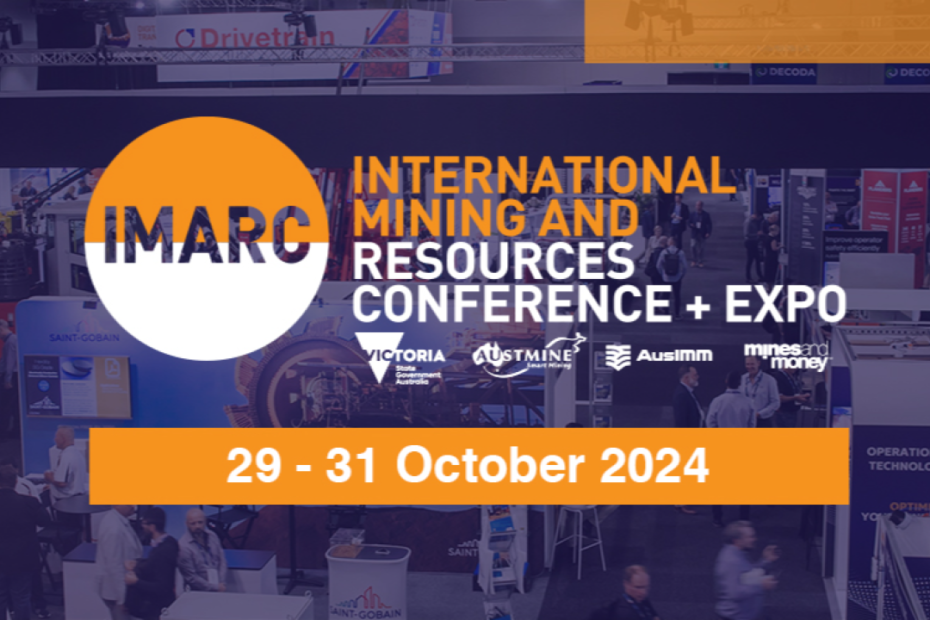The mining industry and government leaders of Mangolia will be part of a powerful international presence at this year’s IMARC event in Sydney, Australia.
Dr Battsengel Gotov, Mongolian National Mining Association chair, speaks here with Beacon editor Richard Roberts in what is a pivotal year for the country’s economy and mining sector.
Dr Gotov, CEO of Mongolian Mining Corporation since May 2010, received a master’s degree in science and a PhD in organic chemistry from Comenius University in Slovakia. He started working as an assistant professor at the university before entering the brewing industry and then moving into mining.
Mongolia’s Mining Prospects Amid Global Demand for Critical Minerals
Richard Roberts: You have been involved in Mongolia’s mining industry for about 20 years. What makes you more optimistic than pessimistic today about the future prospects for the industry?
Battsengel Gotov: Mongolia’s mining industry has always been the backbone of our country’s economy. Over the past two decades we witnessed its growth and transformation in remarkable ways.
I am confident that the mining industry will continue to play a role in Mongolia’s economy in the future.
The global demand for critical minerals is increasing sharply in connection with the green transition, which opens to Mongolia a unique opportunity to emerge and establish itself as a key player in the global supply chain.
International cooperation and trade will be boosted if Mongolia will be able to unlock its potential. This is by developing copper, rare earth elements, uranium and other mineral deposits.
Moreover, Mongolia’s government is putting a stronger emphasis on geological survey work required to better understand the potential mineral resources prospects in the country. This shall serve as a base for future discoveries and investments in the sector.
Infrastructure Development and Sustainable Practices as Industry Drivers
Another key reason for my optimism is the gradual but consistent resolution of infrastructure challenges. During the last decade the country has managed to advance step by step multiple infrastructure projects. I believe that such progress will allow easier access for export products from Mongolia to China and other international markets as well. This logistical advantage is crucial for maintaining our competitiveness on the global stage.
Finally, the industry is moving towards more responsible and sustainable mining practices, which is not only reducing environmental impacts but also strengthening relationships with local communities. This shift is also an important factor to attract growing interest from international investors, who became extremely sensitive to ESG metrics as one of key investment criteria as well.
Sure, there will always be challenges, but resilience and adaptability, combined with focus on critical minerals, infrastructure development, and responsible business practices, will be instrumental drivers for the future of the mining industry.
Opportunities for Mongolia’s Youth in an Evolving Mining Industry
Richard Roberts: I understand you have a chemical science background. You entered the mining industry not too long after you got your PhD. What are the most compelling/positive messages you can convey to Mongolia’s youth about the future of the mining industry in the country, and the future prospects for them?
Battsengel Gotov: My journey from chemical science to the mining industry has shown me how deeply connected these two areas are. They’re not separate worlds at all.
If I were to give a message to Mongolia’s youth it would be that the future of our mining industry hinges on sustainable and innovative practices.
However, one of the big challenges I’ve faced is the gap between what our workforce is trained for and what the industry actually needs.
This experience has underscored the importance of aligning our workforce preparation with the demands of the industry, rather than producing graduates in fields where there are fewer opportunities.
For young professionals this means there are significant opportunities in areas critical to the future of mining, like environmental management, digitalisation, and compliance with safety and environmental regulations.
These fields not only offer great career prospects but also provide the chance to make a real impact on the sustainable development of our country. Moreover, the new generation of industry personnel in Mongolia is increasingly fluent in the international language of mining. This capability enables them to play a significant role in managing investors’ activities responsibly and consistently from the very beginning.
The mining industry is evolving, and it needs people with the right skills to drive this change. If Mongolia’s youth can align their education and training with what the industry really needs, they won’t just be entering the workforce, they’ll be leading and innovating within it.
Mongolia Regulatory Landscape: A Key to Long-term Growth
Richard Roberts: Do you expect this year to be pivotal for Mongolia’s mining laws, or will changes come later?
Battsengel Gotov: This year is crucial for Mongolia’s regulatory landscape due to the new parliament. We aim to keep the regulatory environment stable and predictable to attract and retain investments.
The new coalition government members will attend IMARC to emphasize consistency and transparency in our legal framework. We may see gradual updates, but our priority is stability. A reliable legal environment will support long-term growth in Mongolia’s mining sector.
Richard Roberts: The association recently discussed priorities for 2024-25, including improving foreign cooperation and attracting investors. What steps are you taking?
Battsengel Gotov: For 2024-25, we aim to strengthen Mongolia’s position in the global mining community and secure sustainable investments.
We are actively building connections with international mining associations in Canada and Chile, sharing knowledge, and learning from each other. We are also establishing bilateral agreements to simplify cross-border collaboration and investment.
To attract investors, we focus on making our regulatory environment more transparent and stable. This approach builds investor confidence.
We are showcasing Mongolia’s rich resources and potential at IMARC and Mongolian Mining Week. These events highlight projects needing investments and demonstrate the opportunities within Mongolia’s mining industry.

